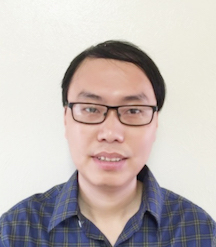非常抱歉,
你要访问的页面不存在,
非常抱歉,
你要访问的页面不存在,
非常抱歉,
你要访问的页面不存在,
验证码:

职称:Assistant Professor
所属学校:University of California-Riverside
所属院系:Chemistry
所属专业:Chemistry, General
联系方式:(951) 827-3710/7188
Our research focus is to develop fluorescent probes and protein-based reagents to solve chemical and biological problems. Protein engineering, fluorescence spectroscopy and microscopy, and synthetic chemistry, are common techniques used in our studies. There are a few long-term goals of our research: first, we hope to advance bioanalytical chemistry by developing novel luminescent/fluorescent sensors for live-cell imaging applications, and we use these probes to answer biological questions related to environmental toxicants and redox biology; second, we try to understand physiological and pathological impacts of redox signaling and oxidative stress, and eventually develop methods to intervene these processes; furthermore, we are interested in photochemical genetics tools and fluorescent probes for brain activities, and new strategies for molecular diversification and recognition, an application of which would be new drug leads against human diseases.
Our research focus is to develop fluorescent probes and protein-based reagents to solve chemical and biological problems. Protein engineering, fluorescence spectroscopy and microscopy, and synthetic chemistry, are common techniques used in our studies. There are a few long-term goals of our research: first, we hope to advance bioanalytical chemistry by developing novel luminescent/fluorescent sensors for live-cell imaging applications, and we use these probes to answer biological questions related to environmental toxicants and redox biology; second, we try to understand physiological and pathological impacts of redox signaling and oxidative stress, and eventually develop methods to intervene these processes; furthermore, we are interested in photochemical genetics tools and fluorescent probes for brain activities, and new strategies for molecular diversification and recognition, an application of which would be new drug leads against human diseases.